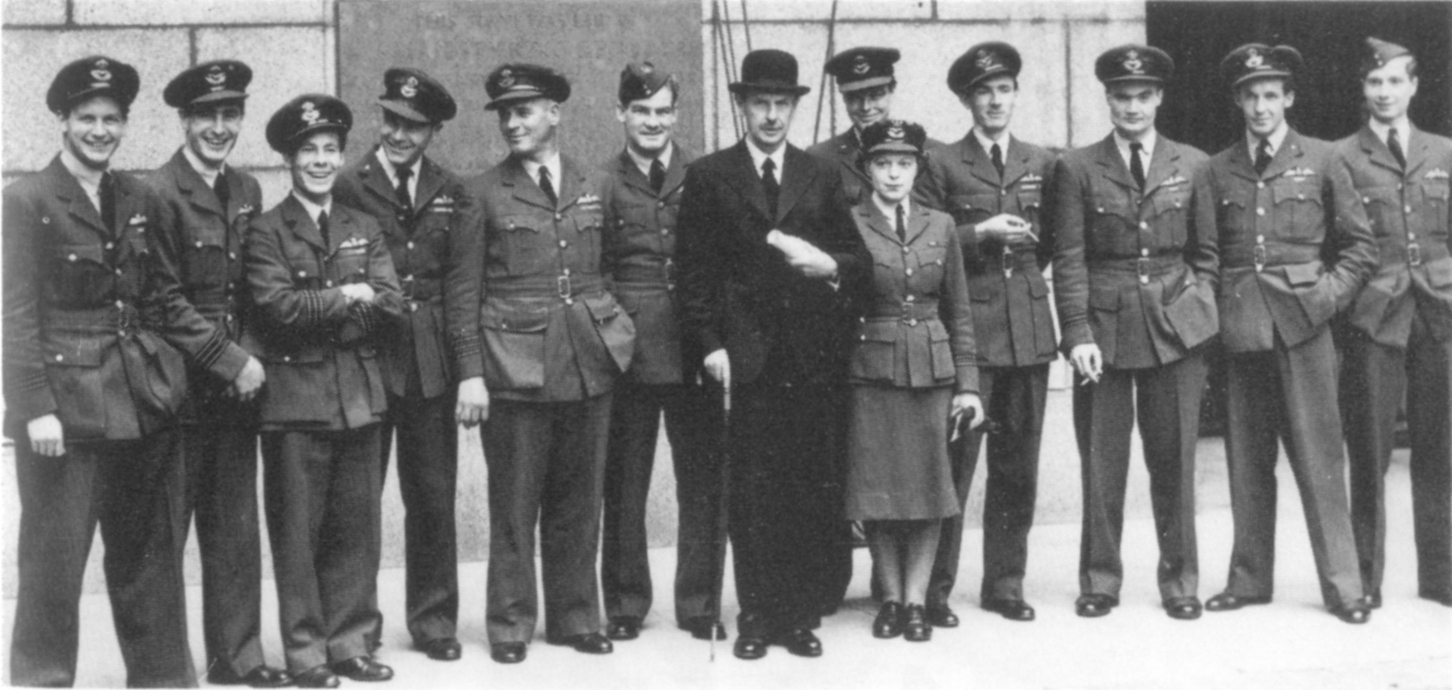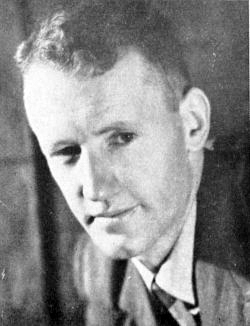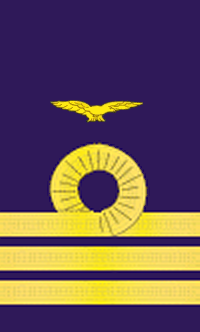|
William Harper (Rhodesian Politician)
William John Harper (22 July 1916 – 8 September 2006) was a politician, general contractor and Royal Air Force fighter pilot who served as a Cabinet minister in Rhodesia (or Southern Rhodesia) from 1962 to 1968, and signed that country's Unilateral Declaration of Independence (UDI) from Britain in 1965. Born into a prominent Anglo-Indian merchant family in Calcutta, Harper was educated in India and England and joined the RAF in 1937. He served as an officer throughout the Second World War and saw action as one of "The Few" in the Battle of Britain, during which he was wounded in action. Appalled by Britain's granting of independence to India in 1947, he emigrated to Rhodesia on retiring from the Air Force two years later. Harper contended that British rule in the subcontinent should never have ended and took a similar stance regarding his adopted homeland, reportedly declaring that it, South Africa, and the neighbouring Portuguese territories would "be under white rule ... [...More Info...] [...Related Items...] OR: [Wikipedia] [Google] [Baidu] |
Minister Of Internal Affairs (Rhodesia)
The Minister of Internal Affairs was the head of the Ministry of Internal Affairs, or INTAF, a department of the Rhodesian government concerned with the welfare and development of Rhodesia's rural black population. During the Rhodesian Bush War, the ministry also played a significant military role. The Minister of Internal Affairs was appointed by the Prime Minister of Rhodesia. The office was first created in 1923 as the Colonial Secretary of Southern Rhodesia. In 1933, it was reconstituted as the Minister of Internal Affairs. In 1979, with the end of Rhodesia and the independence of Zimbabwe, the position was abolished. Its successor office is the Zimbabwean Minister of Home Affairs An interior minister (sometimes called a minister of internal affairs or minister of home affairs) is a cabinet official position that is responsible for internal affairs, such as public security, civil registration and identification, emergency .... List of Ministers of Internal Affairs Coloni ... [...More Info...] [...Related Items...] OR: [Wikipedia] [Google] [Baidu] |
Dominion Party
The Dominion Party was a political party in the Federation of Rhodesia and Nyasaland, led by Winston Field. History The party was established in 1956 by a merger of several political groups and the remains of the Confederate Party, which had disintegrated after its defeat in the federal elections in 1953.Federation of Rhodesia and Nyasaland, Dominion Party Political Parties: A Cross-National Survey However, by 1958 it had gained two more seats through by-elections. Although the party received the most votes in the June 1958 general elections in Southern Rhodesia, it was defeated by the |
Battle Of Britain
The Battle of Britain, also known as the Air Battle for England (german: die Luftschlacht um England), was a military campaign of the Second World War, in which the Royal Air Force (RAF) and the Fleet Air Arm (FAA) of the Royal Navy defended the United Kingdom (UK) against large-scale attacks by Nazi Germany's air force, the Luftwaffe. It was the first major military campaign fought entirely by air forces."92 Squadron – Geoffrey Wellum." ''Battle of Britain Memorial Flight'' via ''raf.mod.uk.''. Retrieved: 17 November 2010, archived 2 March 2009. The British officially recognise the battle's duration as being from 10 July until 31 October 1940, which overlaps the period of large-scale night attacks known as |
The Few
The Few were the airmen of the Royal Air Force (RAF) and the aviators of the Fleet Air Arm, Royal Navy (RN) who fought the Battle of Britain in the Second World War. The term comes from Winston Churchill's phrase "Never was so much owed by so many to so few, Never, in the field of human conflict, was so much owed by so many to so few." It also alludes to Shakespeare's famous speech in his play, ''Henry V (play), Henry V'': "We few, we happy few, we band of brothers..." Aircrew Nearly 3,000 men were awarded the 1939–45 Star#Clasps, "Battle of Britain" clasp. As six of the seven longest surviving veterans of the battle (Squadron Leader John Hart (RAF officer), John Hart, Flight Lieutenant Archie McInnes, Flight Lieutenant Maurice Mounsdon, Air Vice-Marshal John Thornett Lawrence, Wing Commander Paul Farnes and Flight Lieutenant William Clark (RAF Officer), William Clark) died between June 2019 and May 2020 as of 8 May 2020, only one survivor of The Few is still living (Flying O ... [...More Info...] [...Related Items...] OR: [Wikipedia] [Google] [Baidu] |
Anglo-Indian
Anglo-Indian people fall into two different groups: those with mixed Indian and British ancestry, and people of British descent born or residing in India. The latter sense is now mainly historical, but confusions can arise. The ''Oxford English Dictionary'', for example, gives ''three'' possibilities: "Of mixed British and Indian parentage, of Indian descent but born or living in Britain or (chiefly historical) of English descent or birth but living or having lived long in India". People fitting the middle definition are more usually known as British Asian or British Indian. This article focuses primarily on the modern definition, a distinct minority community of mixed Eurasian ancestry, whose first language is English. The All India Anglo-Indian Association, founded in 1926, has long represented the interests of this ethnic group; it holds that Anglo-Indians are unique in that they are Christians, speak English as their mother tongue, and have a historical link to both Europe ... [...More Info...] [...Related Items...] OR: [Wikipedia] [Google] [Baidu] |
Rhodesia's Unilateral Declaration Of Independence
Rhodesia's Unilateral Declaration of Independence (UDI) was a statement adopted by the Cabinet of Rhodesia on 11 November 1965, announcing that Southern Rhodesia or simply Rhodesia, a British territory in southern Africa that had governed itself since 1923, now regarded itself as an independent sovereign state. The culmination of a protracted dispute between the British and Rhodesian governments regarding the terms under which the latter could become fully independent, it was the first unilateral break from the United Kingdom by one of its colonies since the United States Declaration of Independence in 1776. The UK, the Commonwealth and the United Nations all deemed Rhodesia's UDI illegal, and economic sanctions, the first in the UN's history, were imposed on the breakaway colony. Amid near-complete international isolation, Rhodesia continued as an unrecognised state with the assistance of South Africa and (until 1974) Portugal. The Rhodesian government, which mostly compri ... [...More Info...] [...Related Items...] OR: [Wikipedia] [Google] [Baidu] |
Signatories Of Rhodesia's Unilateral Declaration Of Independence
The Rhodesia's Unilateral Declaration of Independence, Unilateral Declaration of Independence of Rhodesia from the United Kingdom was signed by 12 ministers of the Rhodesian Cabinet (government), Cabinet, headed by Prime Minister of Rhodesia, Prime Minister Ian Smith, on 11 November 1965. Four junior members of the Cabinet—two minister without portfolio, ministers without portfolio, the chief whip and the deputy minister of information—did not sign, but were included in the official photograph. Signatories The 12 signatories were: Four junior members of the Cabinet did not sign, but were included in the official photograph: Notes and references ;References ;Bibliography * {{Ian Smith Signatories of Rhodesia's Unilateral Declaration of Independence, History of Rhodesia Politics of Rhodesia Rhodesian politicians Ian Smith ... [...More Info...] [...Related Items...] OR: [Wikipedia] [Google] [Baidu] |
Southern Rhodesia
Southern Rhodesia was a landlocked self-governing British Crown colony in southern Africa, established in 1923 and consisting of British South Africa Company (BSAC) territories lying south of the Zambezi River. The region was informally known as south Zambesia until annexed by Britain at the behest of Cecil Rhodes's British South Africa Company, for whom the colony was named. The bounding territories were Bechuanaland (Botswana), Northern Rhodesia (Zambia), Moçambique (Mozambique), and the Transvaal Republic (for two brief periods instead the British Transvaal Colony, from 1910 the Union of South Africa, and then from 1961 the Republic of South Africa). This southern region, known for its extensive gold reserves, was first purchased by the BSAC's Pioneer Column on the strength of a Mineral Concession extracted from its Matabele overlord, Lobengula, and various majority Mashona vassal chiefs in 1890. Though parts of the territory were laid claim to by the Bechuana and Po ... [...More Info...] [...Related Items...] OR: [Wikipedia] [Google] [Baidu] |
Rhodesia
Rhodesia (, ), officially from 1970 the Republic of Rhodesia, was an unrecognised state in Southern Africa from 1965 to 1979, equivalent in territory to modern Zimbabwe. Rhodesia was the ''de facto'' successor state to the British colony of Southern Rhodesia, which had been self-governing since achieving responsible government in 1923. A landlocked nation, Rhodesia was bordered by South Africa to the south, Bechuanaland (later Botswana) to the southwest, Zambia (formerly Northern Rhodesia) to the northwest, and Mozambique ( a Portuguese province until 1975) to the east. From 1965 to 1979, Rhodesia was one of two independent states on the African continent governed by a white minority of European descent and culture, the other being South Africa. In the late 19th century, the territory north of the Transvaal was chartered to the British South Africa Company, led by Cecil Rhodes. Rhodes and his Pioneer Column marched north in 1890, acquiring a huge block of territory that ... [...More Info...] [...Related Items...] OR: [Wikipedia] [Google] [Baidu] |
Cabinet Of Rhodesia
This list includes ministers of the cabinet of Rhodesia from 11 November 1965, the date of Rhodesia's Unilateral Declaration of Independence, to 1979. It includes ministers of Rhodesia's transitional government, which began following the 1978 Internal Settlement and ended with the establishment of Zimbabwe Rhodesia on 1 June 1979. The internal transitional government included the creation of a four-person "Executive Council" and the appointment of black co-ministers to cabinet portfolios. Cabinet See also * Government of Zimbabwe Rhodesia * Politics of Zimbabwe The politics of Zimbabwe takes place in a framework of a full presidential republic, whereby the President is the head of state and government as organized by the 2013 Constitution. Executive power is exercised by the government. Legislative pow ... References {{Southern Rhodesia topics Politics of Rhodesia History of Zimbabwe Lists of government ministers of Rhodesia Cabinets established in 1965 Cabinet ... [...More Info...] [...Related Items...] OR: [Wikipedia] [Google] [Baidu] |
General Contractor
A general contractor, main contractor or prime contractor is responsible for the day-to-day oversight of a construction site, management of vendors and trades, and the communication of information to all involved parties throughout the course of a building project. Description A general contractor is a construction manager employed by a client, usually upon the advice of the project's architect or engineer. Responsible for the overall coordination of a project, general contractors may also act as building designer and foreman (a tradesman in charge of a crew). A general contractor must first assess the project-specific documents (referred to as a bid, proposal, or tender documents). In the case of renovations, a site visit is required to get a better understanding of the project. Depending on the project delivery method, the contractor will submit a fixed price proposal or bid, cost-plus price or an estimate. The general contractor considers the cost of home office overhead, gen ... [...More Info...] [...Related Items...] OR: [Wikipedia] [Google] [Baidu] |
Wing Commander (rank)
Wing commander (Wg Cdr in the RAF, the IAF, and the PAF, WGCDR in the RNZAF and RAAF, formerly sometimes W/C in all services) is a senior commissioned rank in the British Royal Air Force and air forces of many countries which have historical British influence, including many Commonwealth countries but not including Canada (since Unification) and South Africa. It is sometimes used as the English translation of an equivalent rank in countries which have a non-English air force-specific rank structure. It ranks immediately above squadron leader and immediately below group captain. It has a NATO ranking code of OF-4. It is equivalent to commander in the Royal and United States Navies, as well as to lieutenant colonel in the British Army, the Royal Marines, and the United States Army, Air Force and Marine Corps. The equivalent rank in the Women's Auxiliary Air Force and the Women's Royal Air Force (until 1968) and in Princess Mary's Royal Air Force Nursing Service (until 1980) ... [...More Info...] [...Related Items...] OR: [Wikipedia] [Google] [Baidu] |



.jpg)

